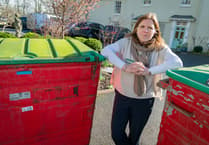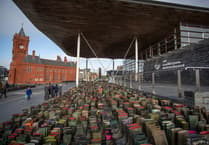One in seven children in Monmouthshire are living in relative poverty, new figures show.
Save the Children UK said the latest figures are grim and prove families are "still very much in the depths of a crisis” as inflation increases.
Department for Work and Pensions figures show 2,296 children in Monmouthshire were living in relative poverty in the year ending April 2022.
It meant 15.6% of children in the area were in a family whose income was below 60% of average household income and claimed child benefit and at least one other household benefit.
Of these children, 1,650 were in absolute poverty as their family's income was lower than 60% of the median income established in 2010-2011 – accounting for (11.2%) of kids in the area.
Overall, it was down from 17.6% of children who were living in poverty in 2020-21 but up from 12.2% seen in 2014-15 when comparable records began.
Becca Lyon, head of child poverty at Save the Children, said kids growing up in poverty often grow up too fast as they are exposed to concerns about money and paying bills.
Ms Lyon added: "This can leave lasting scars. Families need a proper benefits system that protects them from hardship, and means children can grow up without having to know what the inside of a food bank looks like.”
Across the UK, 2.47 million children (20.1%) were in relative poverty and 1.89 million children (15.3%) were in absolute poverty.
About 18.7% of children were in relative poverty and 15.1% in absolute poverty the year before.
Within Wales, Blaenau Gwent had the highest proportion of children aged under 16 in relative low income families (27.4%) and Ceredigion had the highest proportion in absolute low income families (18.8%).
The charity Action for Children accused ministers of knowing what works, given the action taken during the pandemic, but “choosing not to do it”, and said help has been “snatched away” from families.
Imran Hussain, director of policy and campaigns at Action for Children, said: “It’s astonishing that, despite the pandemic, the cost-of-living crisis and the prospect of rising child poverty for years to come, the Government is not targeting help for children in low-income families.
“There is so much more this Government can do in these tough times to stop those with the least from suffering the most,” he added.
A Government spokesperson said they are “committed to eradicating poverty and supporting those in need, and our actions have helped ensure there are nearly two million fewer people in absolute poverty than there were in 2009-10”.
They said the latest figures “reflect the country coming out of the pandemic and accompanying rising prices” and that record levels of support have been provided through cost-of-living payments, the Household Support Fund and the Energy Price Guarantee which “will continue to hold down people’s energy bills”.




